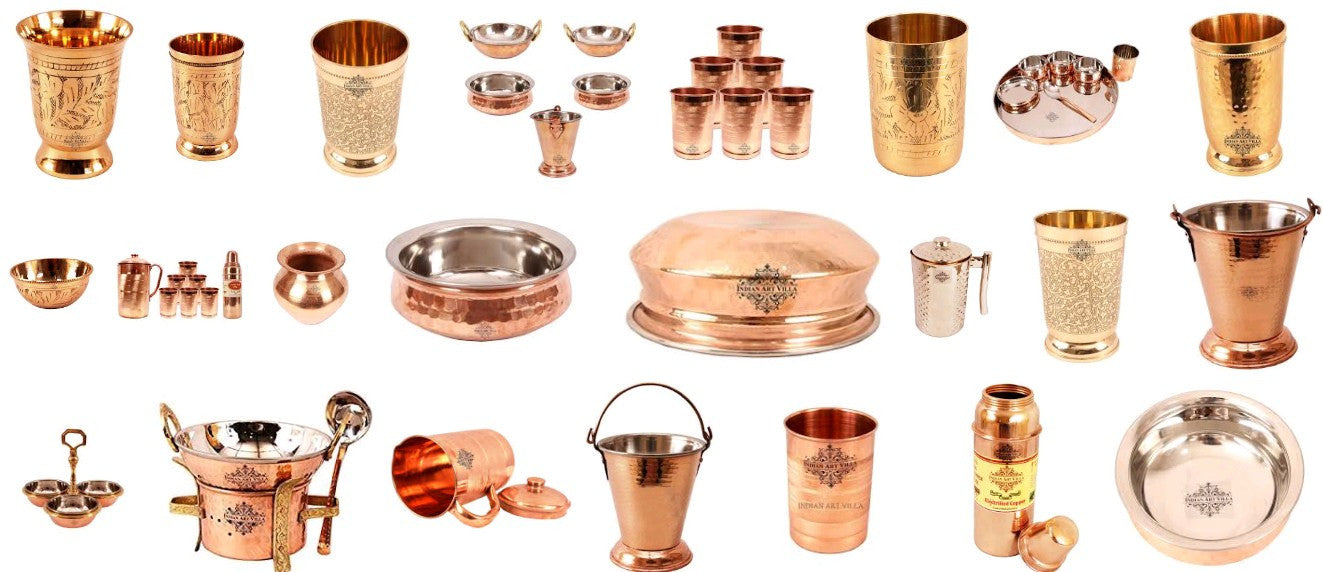Raise Your Craftsmanship with High-Performance Copper Products for Artisans
Raise Your Craftsmanship with High-Performance Copper Products for Artisans
Blog Article
Discovering the Diverse Applications of Copper Products in Modern Industries
From boosting the performance of electrical systems to playing an essential function in eco-friendly energy innovations, the versatility of copper is noticeable. As markets significantly focus on innovation and sustainability, the diverse applications of copper call for a closer examination, specifically concerning their potential influence on future ecological methods and technological developments.
Electric Applications of Copper
Copper is an important product in the electric industry, accounting for around 60% of the overall demand for non-ferrous steels worldwide - Copper Products. Its superior electrical conductivity, which is virtually two times that of aluminum, makes it the preferred selection for a vast array of electric applications. From wiring systems in industrial and household buildings to high-voltage power transmission lines, copper makes sure effectiveness and integrity in electrical power shipment
In enhancement to circuitry, copper is important to the manufacturing of electric elements such as transformers, electric motors, and generators. These elements leverage copper's thermal conductivity and pliability, crucial for warmth dissipation and reliable performance. In addition, copper's resistance to rust enhances the life expectancy and toughness of electrical systems, making it a cost-efficient solution in the long-term.
The growth of eco-friendly energy resources, such as solar and wind power, has actually further enhanced the demand for copper in electric applications. As sectors shift in the direction of sustainable energy solutions, copper's duty becomes even more crucial. In general, the convenience and performance qualities of copper strengthen its condition as a keystone product within the electric industry, driving advancement and performance across different applications.
Plumbing and Piping Solutions
In contemporary pipes systems, the choice of products substantially impacts both performance and long life. Copper has become a preferred choice because of its distinct residential or commercial properties, consisting of deterioration resistance and antimicrobial attributes. These features make sure that copper piping stays safe and long lasting for delivering potable water, a crucial consideration in residential and commercial applications.
Among the essential benefits of copper in pipes is its capability to endure heats and pressures, making it appropriate for a variety of applications, from warm water systems to heating and cooling networks. In addition, copper's versatility enables simpler setup in complex piping designs, minimizing the threat of failures and leaks.
Another noteworthy advantage is copper's lengthy lifespan, often going beyond half a century with proper upkeep. This longevity not only decreases replacement costs yet likewise contributes to sustainable methods by decreasing waste. Copper's recyclability straightens with contemporary ecological standards, advertising a round economy within the pipes sector.
Copper in Renewable Energy
The versatility of copper extends beyond pipes applications, playing an essential duty in the sustainable energy sector. Its exceptional electrical and thermal conductivity makes it an important material in the manufacturing and distribution of eco-friendly energy sources, especially solar and wind power. In solar panels, copper is used in photovoltaic or pv cells and wiring, helping with efficient energy conversion and transmission. Its resistance to rust makes certain long-lasting efficiency, which is essential for optimizing energy result in time.

In addition, as the worldwide demand for electrical lorries (EVs) boosts, copper's role in battery systems and charging facilities becomes much more substantial. The product's capability to perform electrical energy successfully is indispensable to the efficiency of EV batteries, enhancing range and billing rate.
Copper's Role in Electronics
Electronics making relies heavily on copper's extraordinary properties, specifically its high electrical conductivity and thermal efficiency. These qualities make copper an optimal selection for a vast array of digital elements, consisting of ports, motherboard, and electrical wiring. The metal's capacity to efficiently transmit electric signals ensures minimal power loss, which is critical in high-performance digital devices.
Moreover, copper's thermal conductivity plays a significant duty in warm dissipation, securing delicate components from overheating. This is particularly essential in contemporary electronics, where portable styles cause boosted warm generation. Copper is additionally favored for its malleability and ductility, enabling it to be quickly shaped into elaborate styles that fulfill the demands of advanced electronic applications.
With the surge of customer electronics, telecommunications, and electrical automobiles, the demand for copper in the electronics industry remains to grow. As developments in innovation develop, copper continues to be integral to attaining higher efficiency and integrity in digital items. Its recyclability further enhances its allure, as suppliers seek sustainable options without compromising high quality. Therefore, copper remains a cornerstone material in the ever-expanding area of electronic devices.
Ingenious Uses in Production

One noteworthy application is in additive production, where copper-based products are used in 3D printing procedures. This allows for the creation of intricate geometries and light-weight components, especially in the aerospace and automobile sectors. Additionally, copper's thermal conductivity makes it an ideal choice for heat exchangers, boosting efficiency in commercial air conditioning systems.
Additionally, the rise of clever production has seen the unification of copper in IoT devices, where its conductive capacities support sophisticated noticing innovations. In the world my explanation of renewable resource, copper is pivotal in the production of solar panels and wind generators, he has a good point facilitating a lot more efficient energy conversion and circulation.
As sectors strive for sustainability and technology, copper's versatility and efficiency remain to place it as a crucial product, driving innovations in production and contributing to the development of smarter, much more effective products.
Final Thought
In summary, copper products demonstrate exceptional versatility throughout numerous modern industries. Copper Products. Their exceptional conductivity boosts electrical applications, while rust resistance makes sure dependability in pipes. The essential duty of copper in renewable resource and its vital function in electronics highlight its significance in advancing lasting methods. Furthermore, ingenious uses in making highlight copper's flexibility and enduring significance. Collectively, these applications illustrate copper's critical contribution to technological progress and commercial efficiency in contemporary culture.
From boosting the performance of electric systems to playing a crucial duty in renewable power innovations, the convenience of copper is apparent. As sectors increasingly focus on advancement and sustainability, the varied applications of copper call for a closer exam, especially concerning their prospective impact on future ecological practices and technical improvements.
The development of sustainable energy resources, such as solar and wind power, has even more increased the demand for copper in electric applications. Generally, the adaptability and performance characteristics of copper strengthen its condition as a foundation product within the electrical industry, driving advancement and efficiency throughout numerous applications.
The convenience of copper extends past pipes applications, playing a vital duty in the renewable power market.
Report this page